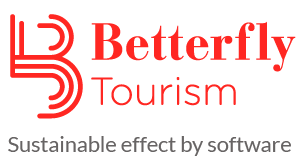Eco-design project for hotel laundryservices
Thanks to the work carried out on environmental footprint labels for hotels, it has been identified that the management of hotel linen has anenormous environmental footprint. In France, this amounts to 470,000 tonnes of CO2 emissions per year (the equivalent of a town of 64,000 inhabitants, such as Quimper or Levallois-Perret), more than 10 million m3 of water per year (the annual needs of 200,000 French people) and 15,000 tonnes of detergent products.
With that in mind, Betterfly Tourism has carried out a joint project with hotel owners, linen launderers, textile manufacturers and manufacturers of detergent products to devise future linen cleaning services that are more environmentally friendly, economical and satisfactory in terms of the quality perceived by consumers.
Innovative solutions tested
6 solutions have been identified to reduce by a half, or even two-thirds, the environmental impact of linen over its entire life cycle:
- Using unbleached bed linen produced in France requires less energy to produce, and eliminating the bleaching phase means it lasts longer.
- Replacing 100% cotton bath towels with microfibre towels reduces the impact of their production and cuts energy consumption during drying.
- Using bedding based on blankets instead of duvets means 500g less washing per bed.
- Optimising the cleaning process by lowering the washing temperature from 70°C to 40°C not only reduces energy consumption for drying, but also extends the lifespan of the bedclothes by reducing damage to the fibres during this phase.
- Training drivers who collect laundry in eco-driving reduces fuel consumption.
- Systematically checking the substances used by launderers will go a long way to preventing the use of substances that are hazardous not only to the aquatic environment but also to our health!
The results of the project taken up by the UN
A case study based on the results of this project has been submitted to the UN to illustrategood sustainable procurement practices as a driver for transforming the tourism sector. It was selected by the United Nations Environment Assembly and presented by Virginie Dumoulin-Wieczorkiewicz, Minister for European and International Affairs at the Ministry for Ecological and Inclusive Transition, in Nairobi on Friday 16 March 2019 during the One Planet Summit.
